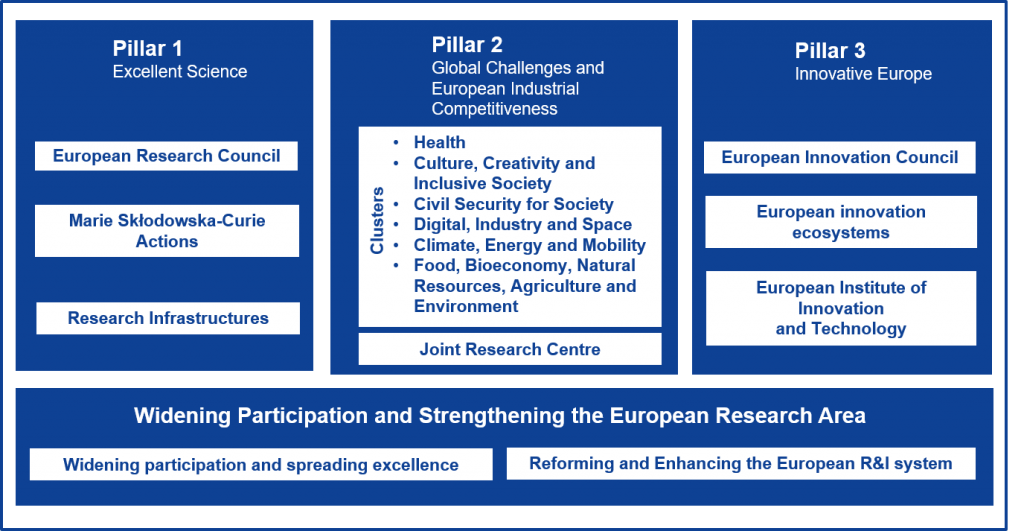Agri-tech catalyst round 10
From Monday 20th July, UK-registered organisations can apply for funding through round 10 of the Agri-tech Catalyst. A share of up to £2.5m is available to work on agri-tech and food chain innovations in Africa.
This competition aims to increase the pace of innovation in the development of agricultural and food systems in Africa. Eligible projects will result in more use of innovations by farmers and food systems organisations, such as manufacturers, processors, retailers, distributors, and wholesalers.
The competition is funded by the Global Challenges Research Fund (GCRF). It has three strands running at the same time:
If you are unsure, RedKnight Consultancy can help you decide which strand to apply for.
Scope
There are many opportunities and challenges for food systems. Therefore, Innovate UK are looking to fund a range of projects, across a variety of technologies, markets, technological maturities research categories, and different strands of the competition. Your proposal must show the potential to have a positive impact on poverty through the uptake of agricultural and food systems technology and innovation.
You can choose from one or more of the following areas:
- primary crop and livestock production, including aquaculture
- non-food uses of crops, excluding ornamentals
- challenges in food processing, distribution or storage, and value addition (such as through a change in the physical state or form of the product)
- improving the availability and accessibility of safe, healthy and nutritious foods
Your project's innovations must be sustainable in the context of environmental challenges, including climate change and resource scarcity. Furthermore, they should minimise negative effects such as pollution and food waste, and promote safe, healthy, and nutritious diets.
For further details on eligibility, scope, and how to apply, please visit Innovate UK. If you think that you might be eligible for Agri-tech Catalyst funding, contact us today to arrange a free consultation.
Biomedical Catalyst relaunches with £30 million

The latest round of Innovate UK's Biomedical Catalyst will soon open for applications. From Monday 27th July, UK-registered SMEs can apply for a share of up to £30 million to develop a product or process that provides an innovative solution to a health and care challenge. Your project’s total eligible costs must be between £250,000 and £4 million.
Scope
This competition combines the early and late-stage strands of the Biomedical Catalyst. The aim of an early-stage award is to create a data package that is sufficient to support the testing of your product or process in a clinical setting. Meanwhile, the late-stage award will test a well-developed concept and show its effectiveness. Projects can focus on any health and care sector or discipline. However, they must be aligned to one of the following innovation areas:
- medical technologies and devices
- stratified healthcare
- advanced therapies (gene and cell therapies)
- digital health
- drug discovery
- diagnostics
Applications that support innovation in the following areas are particularly welcomed: child health technologies, innovations that support clinical trials in the UK, and biomedical innovations that combat the threat of antimicrobial resistance.
What is the Biomedical Catalyst?
The Biomedical Catalyst was developed in 2012 to achieve three key objectives:
- Deliver growth to the UK life sciences sector.
- Deliver innovative life sciences products and services into healthcare more quickly and effectively.
- Provide support to academic and commercially-led research and development.
A recent report by Ipsos MORI found that the Biomedical Catalyst has successfully met its objectives. Key findings include that the Biomedical Catalyst has offered strong value for money, increased companies' R&D investment by 93%, and increased employment by 11 to 15 percent over 3 to 5 years. Steve Bates, CEO of the UK BioIndustry Association, welcomed the announcement of additional funding:
"The Biomedical Catalyst has provided entrepeneurs and SMEs access to crucial capital to grow and scale. This is a key part of the Government's efforts to ensure the UK is resilient to future threats to public health, as well as supporting the development of new life-changing medical treatments, diagnostics and devices."
This competition closes on the 7th October 2020. If you'd like to apply, get in touch with RedKnight today to arrange a free consultation.
UKRI awards £400m to regional R&D projects
Seven major research and innovation projects across the UK are set to receive over £400m in government and industry funding. This investment will benefit some of the country’s most promising R&D projects, including businesses and universities in Cardiff, Bristol, Liverpool, Kent, Glasgow, Edinburgh, and Belfast.
As part of UKRI’s Strength in Places Fund, the funding will support cutting-edge research and innovation projects that drive local economic growth. It is the latest step towards reaching the government’s target of investing 2.4% of GDP in UK research and development by 2027. Each programme will deliver long-term economic benefits and benefit local people, closing the gap between the rate of growth in the area and nationally. The scheme will encourage more competitive and future-proof industries as our economy recovers from the coronavirus pandemic, creating thousands of jobs and enhancing skills across regions,
In May 2020, seven projects were awarded full stage funding from wave 1 of the Strength in Places Fund. As a Cardiff-based company, we are delighted that South Wales’ CS Connected is among them! Led by Cardiff University, the CS Connected SIPF project focuses on strengthening an emerging regional cluster in advanced semiconductor materials and manufacturing, bringing socio-economic benefits to South Wales. The project aims to develop a global advantage in a sovereign, key enabling technology that will allow the UK to increase trade globally in critical sectors such as communications, 5G, autonomous and electric vehicles, and medical devices.
The cluster already hosts 1400 high-value manufacturing jobs in the region and is delivering well above-average contributions to productivity. The project will also introduce a compound semiconductor skills academy, providing significant training that will enhance skills across South Wales. You can find out more about CS Connected and all the other successful projects here.
Interested in staying updated on the grant funding landscape? Sign up to RedKnight’s free monthly newsletter and receive our expert insights direct to your inbox.
£200m available to help innovative companies bounce back
The Sustainable Innovation Fund will help power the UK’s economic recovery and develop new sustainable opportunities for businesses in any sector. It will also help the UK to meet its ambitions to cut carbon emissions to net-zero by 2050.
The funding will support a variety of projects, including the development of ground-breaking medical technologies, as well as new technologies to make homes and offices more energy efficient. The fund is also available to smart sustainability-focused projects aimed at establishing more “climate-positive” behaviours.
"Today I am urging businesses in all parts of the UK to come forward and pitch their state-of-the-art ideas to us, so we can work together to power the UK’s economic recovery."
Sustainable Innovation Fund: round 1
- UK-registered businesses can apply for a share of up to £55m to fund new projects focusing on sustainable economic recovery from COVID-19.
- Competition closes: 29th July 2020
Sustainable Innovation Fund: SBRI phase 1
- Organisations can apply for a share of up to £10 million to help UK businesses and the public sector recover from COVID-19 in a sustainable manner.
- Competition closes: 5th August 2020
If you think you may be eligible for one of the above opportunities, you can apply now through Innovate UK. For our help in putting together a competitive proposal, please contact us today.
Medi2Data Awarded Innovate UK Smart Grant
 RedKnight are delighted to have supported South Wales based Medi2Data with a successful application to Innovate UK. The healthcare software company will receive a Smart Grant of £259,100 to further develop its innovative mobile application, ‘eMR Health Passport.’
RedKnight are delighted to have supported South Wales based Medi2Data with a successful application to Innovate UK. The healthcare software company will receive a Smart Grant of £259,100 to further develop its innovative mobile application, ‘eMR Health Passport.’
Using the company’s flagship proprietary software, eMR, Medi2Data develops highly secure applications that make it simple for GP practices and patients to exchange data. The project, titled eMR Health Passport – A patient-centric mobile application to securely hold and transmit medical data, aims to further enhance the technology’s potential by developing a fully interactive app that will securely hold a copy of the patient’s medical record in an easy-to-navigate format.
Crucially, eMR Health Passport provides a digital solution to two of today’s most pressing healthcare challenges: 1) GPs are becoming overwhelmed by GDPR requirements for data handling and requests for patient medical records from third parties, costing primary care an estimated £70m. Medi2Data estimates these costs could be considerably reduced by using eMR technology and interfacing through the health passport with the patient. 2) eMR Health Passport also offers a novel solution to rising levels of mental illness, distress, and low wellbeing among UK Higher Education students. It provides students with the first free patient-centric health wallet with access to real-time data monitoring performance.
The interactive app will allow users to control who sees their medical data, ensuring appropriate consent. Information stored in the app can be pushed back to their GP practice from health organisations outside the NHS, or overseas, and ‘redacted’ records can be created for authorised third parties to receive.
The enhanced application will allow users to access and update their health record from anywhere in the world at any time, improving patient outcomes and the relationship between GP and patient.
Mr Richard Freeman, CEO of Medi2Data said of the success,
“We’re delighted to be receiving this grant from Innovate UK in order to develop and enhance our proprietary technologies. The Smart Grant means we can build on our achievements and test new innovative software and applications that not only gives patients control of their medical data, but has the potential for significant societal impact in how healthcare services are delivered for decades to come.
The support we received from RedKnight was excellent. Their professional approach and knowledge of the process was crucial in helping us secure the funding.”
Helping companies grow is RedKnight's core mission. You can find out more about the types of projects we support here.
Energy Catalyst Round 8: Clean Energy Access
 Organisations can apply for a share of up to £20 million to develop and demonstrate innovative solutions for clean, affordable, and secure energy access in sub-Saharan Africa, South Asia, or South East Asia. The competition aims to support highly innovative, market-focused energy solutions in any technology or sector.
Organisations can apply for a share of up to £20 million to develop and demonstrate innovative solutions for clean, affordable, and secure energy access in sub-Saharan Africa, South Asia, or South East Asia. The competition aims to support highly innovative, market-focused energy solutions in any technology or sector.
Your project must encourage the development of products and services that help one or more of the specified countries to access secure, low cost, and low carbon energy. Projects must be targeted at people, public services, and local enterprises who are unable to afford or access existing solutions, or who lack the time or expertise to successfully use those solutions.
This competition has three strands, which are dependent on the stage your project is at:
- Early-stage for feasibility studies (this strand)
- Mid-stage for industrial research
- Late-stage for experimental development
The Energy Catalyst Programme is open to any energy technology from any sector. However, to be in scope for round 8 your project must address the following 3 subjects: energy access, the energy 'trilemma', and gender and social inclusion. For example, your project could focus on:
- making new solutions more affordable.
- integrating technologies in new systems or business models to help unlock finance and deployment.
- developing technologies or partnership business models that address other barriers to deployment.
- unlocking under-served market segments that existing solutions are not reaching at scale.
This competition closes on 16th September 2020. For further details on eligibility, scope, and how to apply, please visit the competition page.
Interested in applying? Contact us today to arrange a free consultation.
BEIS Funding Allocations 2020-2021
BEIS 2020-21 Funding Allocations reveal a huge boost for UK research and innovation.
The Chancellor’s 2020 Budget included ambitious plans to increase public research and development (R&D) investment to £22 billion by 2024. This is the largest and fastest ever expansion of funding for research and innovation, taking direct support for R&D to 0.8% of GDP. It places the UK among the top quarter of OECD nations.
The Government remains committed to meeting this goal, despite the uncertainty caused by the Coronavirus pandemic. The Department for Business, Energy and Industrial Strategy (BEIS) is moving forward with its plans, confirming allocations of the R&D budget for 2020-2021. As a first step towards meeting this ambition, £10.36 billion of funding is being allocated to BEIS programmes and partner organisations this financial year.
The funding includes:
- investment in world-leading science and advanced mathematics
- investment in Net Zero technologies in the energy, automotive and aerospace sectors
- support to immediate efforts to respond to COVID-19, including sponsoring efforts to manufacture and trial a vaccine
- investment to secure and maintain the essential talent and infrastructure needed to deliver cutting-edge research.
In short, funding for public sector research establishments will enable the UK to be at the forefront of fusion energy technology. It will also deliver world-leading meteorological and climate science, develop cutting-edge quantum measurement techniques, and capitalise on the UK’s space capabilities. In a move aimed at creating stability during the pandemic, BEIS is providing further support to R&D intensive businesses and higher education institutions.
If you're interested in viewing the full list of R&D allocations for this financial year, click here. Alternatively, to discuss funding opportunities with one of our specialist advisers, please contact us today.
Interested in staying updated on the grant funding landscape? Sign up to RedKnight’s free monthly newsletter and receive our expert insights direct to your inbox.
£2m available for projects on healthy ageing
Last month, Eureka made an exciting multilateral call for projects on healthy ageing. UK registered businesses are invited to apply for a total grant of up to £500,000, to develop digital health technologies in partnership with organisations from Eureka countries. Innovate UK have allocated up to £2 million to fund innovation projects in this competition.
Projects must meet one of more of the following themes: robotics, augmented or artificial intelligence, software as a medical device, wearables, medical devices, diagnostics, imaging, data analytics, sensors, and apps. Your project must focus on industrial research but can include experimental development activities if Innovate UK deem it appropriate – you can read their general guidance here.
The competition closes on 5th August 2020. More information can be found on the Innovate UK web page. If you think that you might be eligible for this fund, please contact us to organise a free consultation.
Japan GlobalStars call for joint project proposals
 Within Eureka’s GlobalStars initiative, Japan, Canada, Czech Republic, France, Germany, Israel, Spain, and the UK are launching a common call for submissions from Japan and respective Eureka member countries. Eureka GlobalStars invites participants to submit joint project proposals in the research and development of innovative products and applications with a strong market potential.
Within Eureka’s GlobalStars initiative, Japan, Canada, Czech Republic, France, Germany, Israel, Spain, and the UK are launching a common call for submissions from Japan and respective Eureka member countries. Eureka GlobalStars invites participants to submit joint project proposals in the research and development of innovative products and applications with a strong market potential.
This is an open call for proposals. It invites projects from any sector area, except for nuclear technologies and pharmaceutical technologies. The project must involve at least one company from Japan, and one from a respective Eureka member country.
To be eligible for Innovate UK support, a UK applicant must:
- be a UK based business, of any size;
- collaborate with the Japanese lead partner;
- involve at least one UK based SME, unless the lead themselves is an SME;
- the UK SME in your consortium must incur at least half of the UK total eligible project costs. If your consortium contains more than one UK SME, this minimum is shared between them.
The call opens on Monday 8th June and the deadline for Eureka application is set at 10th September 2020. For more information about this opportunity, please click here. Alternatively, to discuss your project with one of our specialists, contact us today.
To stay updated on grant funding opportunities, sign up to our free monthly newsletter, and receive expert insights direct to your inbox.
Horizon Europe: New Horizons for European Funding
2020 marks the end of Horizon 2020, the EU’s biggest ever EU Research and Innovation programme, which has provided nearly €80 billion of funding over 7 years (2014-2020). Succeeding Horizon 2020, Horizon Europe will run from 2021 to 2027 to ensure that Europe remains a world-class leader in Research and Innovation. The European Commission will invest €100 billion into Research and Innovation that will shape the future of Europe, making it the most ambitious programme of its kind.
“With Horizon Europe, we want to build on this success and continue to make a real difference in the lives of citizens and society as a whole.”
-European Commission Vice-President Jyrki Katainen, responsible for Jobs, Growth, Investment and Competitiveness.
Preliminary Structure of Horizon Europe

Like Horizon 2020, the programme will have three pillars. The first will fund excellence in science, supporting frontier research projects designed by researchers through the European Research Council. The second pillar focuses on Global Challenges and European Industrial Competitiveness. It will support research into societal challenges and reinforce technological and industrial capacities. It also sets ambitious EU-wide missions to tackle some of Europe’s biggest problems, including health and climate change. Thirdly, the Innovative Europe pillar aims to increase Europe’s prowess in market-creating innovation and SME growth through the European Innovation Council.
Following the Horizon 2020 Interim Evaluation, the European Commission has implemented several changes to support Research and Innovation across Europe. For example, they will support breakthrough, high-risk innovation through the creation of the European Innovation Council. This will help innovators to create new market opportunities. Additionally, through the launch of new missions with bold, ambitious goals, Horizon Europe will create more impact across Europe. An open science policy will enable better science through collaborative ways of producing and sharing knowledge and data. Further, an emphasis on widening participation will help low Research and Innovation performing Member States to participate in Horizon Europe.
Despite the uncertainty caused by Brexit, we are hopeful that the UK will remain a part of the Horizon Europe research programme. If you'd like to discuss European funding with one of our specialist advisers, please do not hesitate to contact us today.
To stay updated on the grant funding landscape, sign up to our free monthly newsletter, and receive expert insights direct to your inbox.
